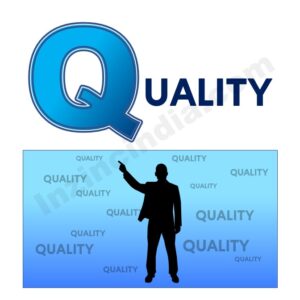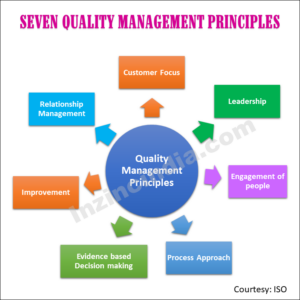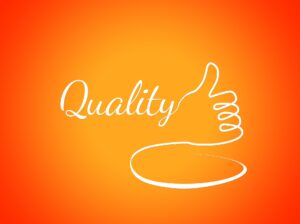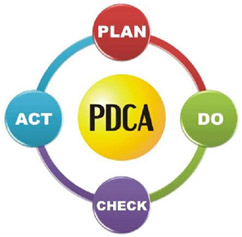ISO 9001 Consultants in Bangalore – Karnataka
 Our Inzinc Consulting India team comprising expert ISO 9001 Consultants in Bangalore, Karnataka ensure the planning, documentation, implementation, maintenance and continual improvement of Quality Management System as per the clauses laid out by the ISO 9001:2015 Standard.
Our Inzinc Consulting India team comprising expert ISO 9001 Consultants in Bangalore, Karnataka ensure the planning, documentation, implementation, maintenance and continual improvement of Quality Management System as per the clauses laid out by the ISO 9001:2015 Standard.
We handhold our Customers, guide them, make them thoroughly understand the advantages of the ISO 9001 system. In this manner, our Client organizations can put a solid foundation upon which they can keep realizing continual improvements.
About ISO and the ISO 9001 Standard
 ISO stands for International Organization for Standardization which is based in Geneva, Switzerland. ISO is an independent and Non-governmental Organization that publishes International Standards on various fields both technical and management. One such standard is the ISO 9001 Quality Management System standard which is by far the most popular standard.
ISO stands for International Organization for Standardization which is based in Geneva, Switzerland. ISO is an independent and Non-governmental Organization that publishes International Standards on various fields both technical and management. One such standard is the ISO 9001 Quality Management System standard which is by far the most popular standard.
The ISO 9001 standard consists of requirements in the form of clauses that help in realizing a Quality Management System in an Organization. The latest ISO 9001 standard is the ISO 9001:2015 standard which was published on 15th of September 2015 which replaced the ISO 9001:2008 version.
Who can implement ISO 9001 Standard ?
 The ISO 9001 standard is generic in nature. Therefore, any Organization whether they are into products or services or both can implement it. ISO 9001 can be implemented by any business sector, any business type and by any business size. It is the same ISO 9001 clauses for all the businesses although there can be businesses who can justify non-applicability of few clauses. Our experienced ISO 9001 Consultants in Bangalore, Karnataka shall ensure seamless implementation of the standard.
The ISO 9001 standard is generic in nature. Therefore, any Organization whether they are into products or services or both can implement it. ISO 9001 can be implemented by any business sector, any business type and by any business size. It is the same ISO 9001 clauses for all the businesses although there can be businesses who can justify non-applicability of few clauses. Our experienced ISO 9001 Consultants in Bangalore, Karnataka shall ensure seamless implementation of the standard.
The ISO 9001 Clauses
 There are ten ISO 9001 Clauses in the latest ISO 9001:2015 Standard. So, a Clause is nothing but a rule or a requirement that needs to be followed to achieve a result. The following is the orderly list of the ISO 9001 Clauses as per the 2015 version:
There are ten ISO 9001 Clauses in the latest ISO 9001:2015 Standard. So, a Clause is nothing but a rule or a requirement that needs to be followed to achieve a result. The following is the orderly list of the ISO 9001 Clauses as per the 2015 version:
- Scope
- Normative References
- Terms and Definitions
- Context of the Organization
- Leadership
- Planning
- Support
- Operation
- Performance Evaluation
- Improvement
(Courtesy: ISO)
Seven Quality Management principles – the basis of ISO 9001:2015
There are seven Quality Management principles upon which ISO 9001 is based. These principles are
- Customer Focus

- Leadership
- Engagement of People
- Process Approach
- Improvement
- Evidence-based Decision Making
- Relationship Management
The above principles must be extensively used by ISO 9001 Organizations to reap the benefits of the Quality Management System. Our ISO 9001 Consultants in Bangalore, Karnataka will guide Organizations to use the above principles extensively.
(Courtesy: ISO)
ISO 9001 Benefits
By implementing the ISO 9001 Quality Management System (QMS), Organizations can realize various business benefits. Below is a list of key ISO 9001 benefits:
- Transition towards business working “as a system” rather than a “people dependent” set up. The interdependent and interactive processes help realize a holistic Quality Management System.
- Will help deal with business uncertainties through Risk based thinking

- Realize benefits of implementing best practices in the Organization
- Win Customer trust and confidence which means more business. More business means growth of the business
- Through the PDCA (Plan – Do – Check – Act) cycle followed for the system and the processes, continual improvements can be realized.
- Wastes in the form of defects and errors can be minimized.
- Monitoring and measurement of processes along with audits act as a check for analyzing performance and correcting the short falls.
- ISO 9001 system when properly realized can be a good motivating factor for employees since their productivity increases and hence their performance.
- Achieve business objectives and process level objectives more consistently with the help of Risk Management.
- Organizations get recognized in the market and its brand image improves.
Plan – Do – Check – Act (PDCA) Cycle
ISO standards advocate the use of an improvement cycle called as the Plan-Do-Check-Act cycle or PDCA Cycle. This was first advocated by the renowned Quality Guru Dr. Edwards Deming and hence it is also called “Deming Cycle”.
The PDCA cycle concept can be applied to any process or to the entire system or even to the ISO 9001 Clauses. It helps to realize continual improvements (step by step improvements) and churn out the waste from the system. Our ISO 9001 Consultants in Bangalore, Karnataka demonstrate how to use the PDCA for business improvements.
Key features of ISO 9001 Standard
The ISO 9001:2015 Standard has the following key features as requirements:
- Common High level structure: Henceforth, the ISO standards will be written with a common high level structure and text based on the Annex SL standard. Hence, integration of ISO 9001 with other ISO standards will become easy.

- Context of the Organization: ISO 9001:2015 introduces the concept of Context of the Organization. Organizations have to now identify positive and negative issues from their internal and external environments that affect or can affect their business. And also included are the requirements of internal and external interested parties that needs to be identified and fulfilled.
- Risk based thinking: ISO 9001 stresses on using Risk based thinking throughout the Quality Management System. ISO defines risk as “the effect of uncertainty”. Risk based thinking ensures that the factors that cause deviation of the processes from plans are managed to reduce the negative impact on the Organization. Risk Management has effectively replaced preventive action which was part of earlier versions of ISO 9001.
- Onus on Leadership: Unlike the earlier versions of ISO 9001, the current standard has stressed on the Leadership team’s commitment and accountability as the key to the success of ISO 9001. Leadership at all levels must now be accountable for the success or failure of the QMS in their Organization. They can delegate tasks but shall retain accountability.
- Less prescriptive ISO 9001 Documentation: One of the main concerns of Organizations implementing the ISO 9001 Standard as per 2008 version was that the standard prescribes a big list of documents and records. In contrast, the new ISO 9001 2015 version does not prescribe documentation and calls for Organizations to come up with “documented information” that can be suited according to the size of the Organization, the complexity of the processes and the competence of people working in the Organization. So, smaller Organizations can choose a flexible and compact documented information to run and sustain their Quality Management System. Larger Organizations can choose an elaborate documentation since they need it for training and sustenance.
- Organizational Knowledge: This is an important addition to the 2015 version which advises Organizations to create and maintain the knowledge required to grow and sustain. In the absence of key human resources, with up to date Organizational knowledge database, an Organization can continue with its business rather than re-inventing the learning wheel.
- No Management Representative: Unlike earlier versions of ISO 9001, the 2015 version puts the functions of Management Representative to all process owners. This way the responsibility to maintain the ISO 9001 system is decentralized and made more participative.
Our team of ISO 9001 Consultants in Bangalore, Karnataka will clearly explain the above features and ensure its understanding and application by our Customers.
Our scope of ISO 9001 Consulting
 Our scope of ISO 9001 Consulting covers the documentation, training, implementation guidance, conducting audits or help conduct audits and guidance on conducting Management Review Meetings (by our Client’s Top Management). Our ISO 9001 Consultants in Bangalore, Karnataka also assist in resolving the Non-conformities and take the necessary Corrections and Corrective actions.
Our scope of ISO 9001 Consulting covers the documentation, training, implementation guidance, conducting audits or help conduct audits and guidance on conducting Management Review Meetings (by our Client’s Top Management). Our ISO 9001 Consultants in Bangalore, Karnataka also assist in resolving the Non-conformities and take the necessary Corrections and Corrective actions.
